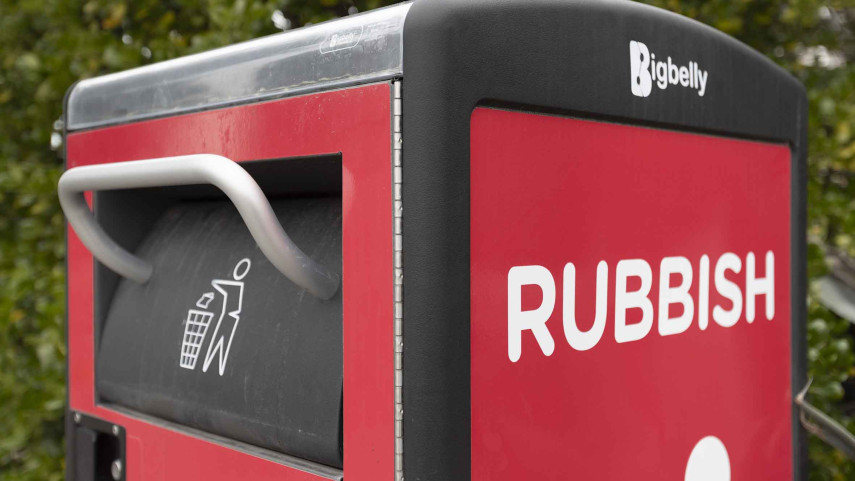
Bigbelly bins lay waste to Banks Peninsula rubbish over summer

Share this story
Extra solar-powered Bigbelly rubbish bins placed across Banks Peninsula will help ease the pressure on collection services and facilities as Akaroa readies for another busy summer visitor season.
Nine “smart” bins will be in place by November as part of the city’s smart waste network.
Six smart bins will be installed in Akaroa, along with one each in Little River, Corsair Bay and Naval Point in Lyttelton.
The double bins will also have Wi-Fi capability for public use within a 60-metre radius.
A built-in solar cell-powered compactor means that the bins can swallow up to five times more rubbish than a standard waste bin, helping to deal with the influx of day-trippers, cruise ship visitors and freedom campers.
The Council bins utilise smart sensors that detect rubbish levels and alert maintenance contractors when nearing capacity so that the bins can be emptied on demand.
Christchurch City Council Head of Parks Andrew Rutledge says the smart waste solution better addresses the needs of Banks Peninsula as visitors pour into the popular recreational area.
“By pinpointing tourist hotspots and introducing more Bigbelly bins, we can better keep up with the demands on waste services,” Mr Rutledge says.
“The smart bins prevent rubbish overflows, ensuring public spaces are better maintained during high-use periods over summer.
“We can also optimise our waste collection service.
“We will place the bins in the region’s high-demand areas, including the waterfront in Akaroa.”
The compacting and online alert systems utilised by the bins ensure optimum use of waste collectors’ time while the technology prevents rubbish overflow.
Daily data provides updates on the capacity status of each bin.
The Ministry of Business, Innovation and Employment’s Tourism Infrastructure Fund has provided $86,790 towards the installation of the bins.
Akaroa’s public toilet facilities will also undergo an upgrade in preparation for the summer visitor rush.
The existing block of public toilets in Rue Jolie – behind the Akaroa Service Centre – will be demolished to make way for a 13-metre-long prefabricated block housing eight toilets.
